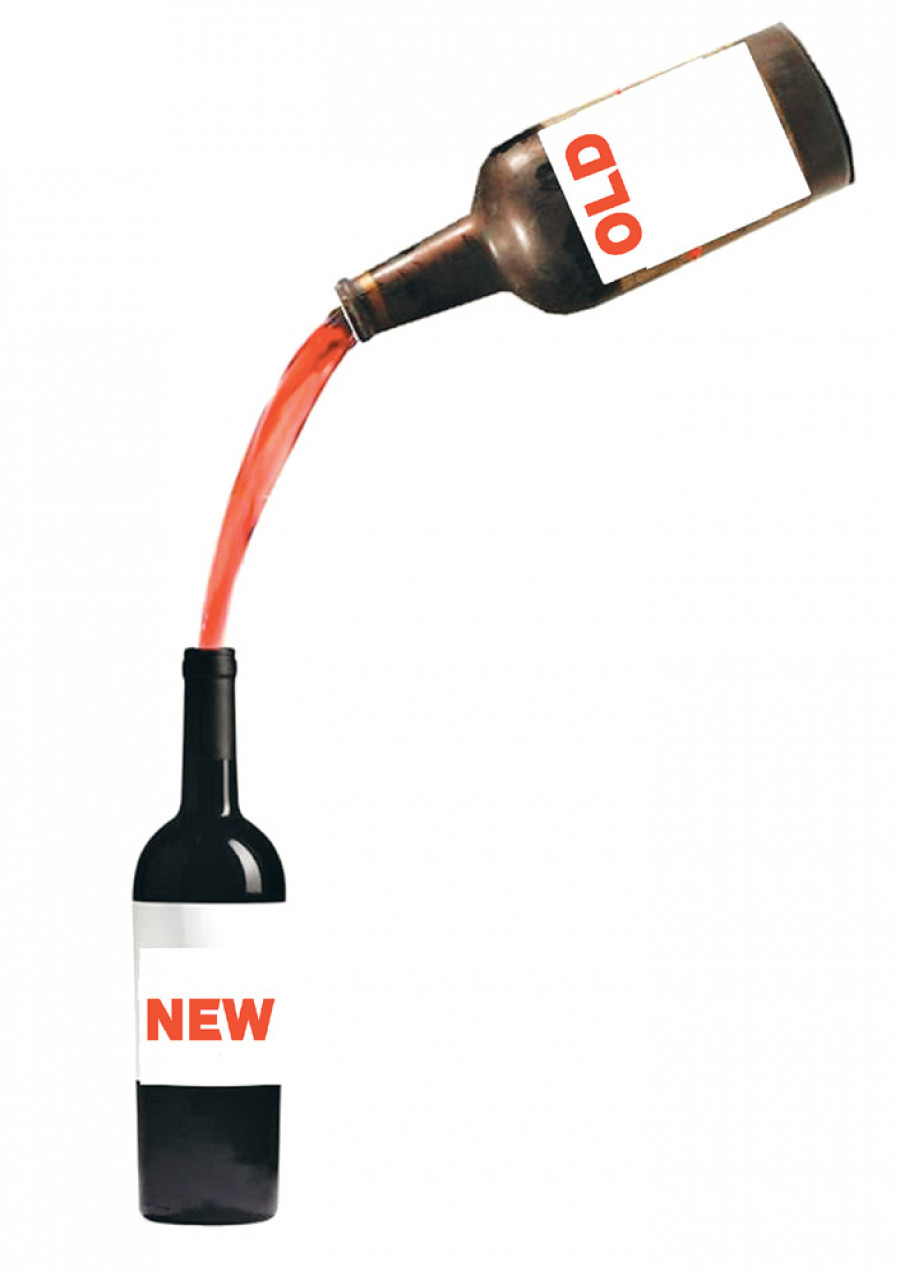Is Your Fundraising Like Old Wine in New Bottles?
The jangle fallacy occurs when two similar or identical things are assumed to be different because they are labeled differently – old wine in new bottles. This is rife in psychology where the term originated. My fan faves,
- Grit. In high school my kids were required to read the Duckworth book. Grit was a new and novel term, a combination of passion and perseverance for long-term goals and a great predictor of success. Bunk. Meta-analysis shows Grit has a .84 correlation with the decades old Big Five trait of Conscientiousness.
- The Dark Triad. Ominous, creative, spooky. Feels like Emperor Palpatine partnering up with Spectre and Hydra. This was described as parts psycho & narcissist. Same meta study found a -.9 correlation with our old friend Agreeableness.
- Net Promoter Score (NPS). This fantastical label is applied to the humble, formerly known-as, willingness to recommend survey question. It’s creator, Reicheld, would argue that the calculation is novel. He’s right, it’s also throwing away good data with no upside. The survey question was always of very limited (read: zero) value and lipstick on the pig ain’t making it any more kissable.
- The codex of behavioral science ‘nudges’. I find codex to be a mysterious word, much like the byzantine explosion and visualization of nudges. If you haven’t invented a nudge as a behavioral science company (I’m looking at you DonorVoice…) then maybe you just aren’t trying hard enough. Or, maybe, it’s nonsense. For example, how different is telling hotel guests that “75% of guests in this room reuse their towels” (social proof) from saying “most people in your neighborhood recycle” (normative influence). Both use the power of perceived common behavior to guide decisions.
- Content marketing. Content marketing is creating and sharing valuable, relevant info to attract a clearly defined audience with the ultimate goal of driving profitable customer action. News flash, if you were defining marketing absent the adjective any other way, you’re doing it wrong.
Often this is nothing more than commercial shenanigans and a dose of hubris believing one invented the wheel. The meek borrow, genius steal and somewhere in between, folks relabel.
But sometimes the relabeling obfuscates, taking more granular, discrete things and rolling them up into a vague concept.
Take Engagement. No please, take it. This word used to have its own meaning and purpose and now is mostly a relabel of a bunch of random behaviors – e.g., click, open, like, follow, repost. Left off the “engagement” potpourri of random outcomes is another old-school term, reading. Perhaps reading is no longer hip and En vogue but it is the number one behavior, by a country mile, that donors or prospects do to as a form of active involvement showing interest – i.e., the act of being engaged.
Engagement is a state of mind not a behavior. The behaviors that get rolled into the “engagement” stew may or may not reflect actual engagement. Plus, those behaviors miss out on the #1 behavior. Plus, if any of those non giving behaviors is useful for driving giving then I need to analyze and act on them separately. There is a lot I can do to improve the percentage of people who read my copy and the amount of time they spend with it.
Trying to increase ‘engagement’ as a relabeled, bundled abstraction is worse than old wine in new bottles, it’s pouring the wine down the drain.
Kevin


